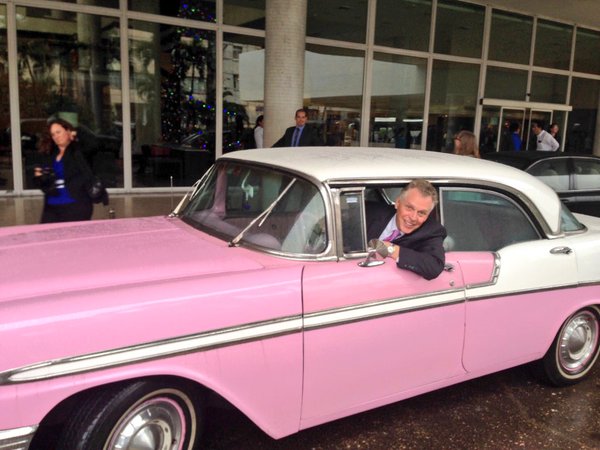
Cuba and the U.S. – the state of the reunion
WASHINGTON, D.C. – In the days before President Obama’s 2015 State of the Union address, we wrote about the promising dimensions of his new direction in Cuba policy – it’s strong emphasis on expanding travel, encouraging diplomacy, broadening engagement by “ball players and marine scientists, artists and experts,” and bringing the business community farmers, businesses, and individuals with property compensation claims into the process to increase the momentum for reform.
In the last year, all of this – and more – has come to pass.
During the first days of the New Year, we got to see first-hand the benefits of the policy when we joined a trade delegation led by Virginia’s Governor Terry McAuliffe – a visit that produced cooperation agreements between the Cuban and Virginia Port Authorities, and between Virginia Commonwealth University and the University of Havana.
The first clears the way for businesses in Virginia to build and grow relationships with counterparts in Cuba; the second means students from both countries will be able to expand their horizons through academic exchanges and joint research projects.
McAuliffe, who delighted onlookers by driving a 1956 pink Chevrolet Bel Air named Lola around Havana (shown in photo at top), concluded his visit to Cuba by previewing an appeal he promised to make to Paul Ryan, the House Speaker, Mitch McConnell, the Senate Majority Leader, and to Members of the House and Senate across the political aisle:
“2016 needs to be the year that we move our relationship forward, that we end this embargo, and we do the right thing for the citizens of the United States of America and the citizens of Cuba.”
He also told reporters, he’d be surprised if the President didn’t visit Cuba. The President’s Deputy National Security Advisor, Ben Rhodes, delivered the same message to reporters over the weekend, as he laid out the administration’s foreign policy priorities for the coming year.
What’s exciting to us is that the administration continues moving forward on efforts to broaden and deepen the reforms. Reuters broke an exclusive story this afternoon [Friday Jan. 8] saying the U.S. government is finally considering putting to an end the program that lures Cuban doctors and nurses off their foreign postings with promises of easy entry into the United States.
A year ago, Rep. Rosa DeLauro and more than a dozen colleagues urged the administration to cancel this program, especially after lauding what Cuba had done to fight the Ebola outbreak in Western Africa. Canceling this program – conceived under President George W. Bush as a brain-drain effort – is not just consistent with President Obama’s new direction, it is long overdue.
The progress we have seen in the last year was made possible by smart and strategic policy initiatives but also by patient diplomacy that set aside the kinds of distractions which left us trapped in the Cold War mindset.
If this can be the steady state of our diplomacy it augers well for the state of the U.S.-Cuba reunion.
(From Cuba Central)

